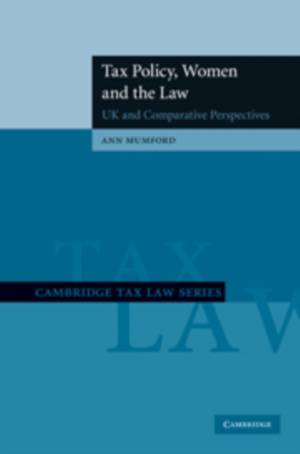
Door een staking bij bpost kan je online bestelling op dit moment iets langer onderweg zijn dan voorzien. Dringend iets nodig? Onze winkels ontvangen jou met open armen!
- Afhalen na 1 uur in een winkel met voorraad
- Gratis thuislevering in België vanaf € 30
- Ruim aanbod met 7 miljoen producten
Door een staking bij bpost kan je online bestelling op dit moment iets langer onderweg zijn dan voorzien. Dringend iets nodig? Onze winkels ontvangen jou met open armen!
- Afhalen na 1 uur in een winkel met voorraad
- Gratis thuislevering in België vanaf € 30
- Ruim aanbod met 7 miljoen producten
Zoeken
Omschrijving
Tax policy frequently targets the choices that women face in many aspects of their lives. Decisions regarding working away from home, having children, marrying, registering a partnership or cohabiting with a partner all entail tax consequences. The end of the twentieth century saw progress in women's legal and social equality, but many governments began to increase their reliance on the tax system as a means of influencing the choices that women make. The juxtaposition of this instrumentalist deployment of tax with persisting economic inequality for women is the starting point for this book. Employing a range of theoretical approaches, and grounding its investigations in sociological theory and cultural philosophy, it provides the foundation for a comparative, contextual consideration of the issues that arise at the intersection of women, tax policy and the law.
Specificaties
Betrokkenen
- Auteur(s):
- Uitgeverij:
Inhoud
- Aantal bladzijden:
- 244
- Taal:
- Engels
- Reeks:
Eigenschappen
- Productcode (EAN):
- 9780521878036
- Verschijningsdatum:
- 29/11/2010
- Uitvoering:
- Hardcover
- Formaat:
- Genaaid
- Afmetingen:
- 152 mm x 229 mm
- Gewicht:
- 498 g

Alleen bij Standaard Boekhandel
+ 181 punten op je klantenkaart van Standaard Boekhandel
Beoordelingen
We publiceren alleen reviews die voldoen aan de voorwaarden voor reviews. Bekijk onze voorwaarden voor reviews.











